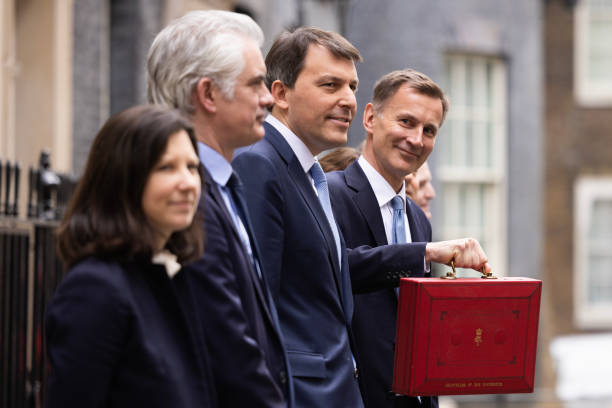Budget: Jeremy Hunt doesn’t want rabbits in hats, he wants all of us back to work

Jeremy Hunt needs people back in the workforce if he wants the economy to grow, and he’s spending more than £2.5m per new worker by 2027-28 through a combination of pension reforms and cheaper childcare, writes Sascha O’Sullivan
Jeremy Hunt’s budget was extremely boring. It was supposed to be. This will come as a surprise to our economics editor, who looks forward to the Office for Budget Responsibility dropping new forecasts with the same anticipation as most people wait for Taylor Swift to finally announce her UK tour dates.
Since the start of the pandemic, budgets, spending statements, random Tuesday afternoons when Rishi Sunak announced a hike to National Insurance, have matched the drama of their context.
Instead, we were regaled with two words which are extremely “unsexy”, “unchic” or “so wet” depending on which generation you belong to: “actual policies”.
Hunt had around £9bn extra to play with and little chance to inflate those figures, any hint of fiddling with the numbers would give the Labour Party a chance to further dent the crucial measure of “trust in handling the economy”.
In uncertain times, people want boring. They want help on their energy bills, they want the promise inflation will fall – and with it their daily costs – and they want a return to “normal”.
There were decent policies packed in there on unravelling cumbersome regulations, full expensing for business investments and reversing cuts to R&D tax credits, but the bulk of Hunt’s gambit is on fixing the uneven British workforce. Done right, it could nudge the economy back to life and ensure he meets his promise of getting the deficit down. In other words, it could mean we all feel a bit less skint.
We will spend around £7bn on scrapping the lifetime allowance on pension pots, reforming disability benefits and his cornerstone policy of making childcare more affordable.
It would have been a Big Bang to change how we pay for childcare from April 1 this year, but it would have overwhelmed the childcare sector, who are already struggling with costs and recruitment – just like everyone else.
It does mean plans to give all working families 30 hours a week of free care for their kids won’t be fully implemented until September 2025, and with an election set for next year, it will mean a campaign full of cute kids sticking play doh up their noses while their parents go to work.
But there is a significant margin for error.
According to the OBR, the combination of policies is expected to increase employment by about 0.3 per cent or 110,000 people by 2027 to 2028. For context, there are more than a million vacancies in the UK, up 328,000 on pre-pandemic levels.
Higher migration will also help, with 160,000 people expected to come to the UK.
If there is a significant windfall of an extra 500,000 people in the workforce in five years time, this will give the Chancellor a hefty £11bn buffer against his fiscal mandate of borrowing falling as a proportion of GDP.
The flipside is also true.
As the OBR says: “In the upside scenario, the margin against the fiscal mandate would roughly treble, but in the downside scenario it would be gone.”
There’s also an interesting twist on the childcare policy. As a result of it simply being increasingly expensive to live in the UK overall, a decent chunk of parents are deciding to have kids later in life.
The average age for a woman having her first child is now 30.7 years old, according to the Office for National Statistics. Separate research from Evelyn, a financial services firm, indicates people are waiting until they earn enough money to afford to have kids.
With real household disposable income – a measure of living standards – set to fall by 5.7 per cent over the next two years, people’s pockets are still going to be pretty light.
Avoiding the label of “recession”, even if people are still worse off, will help consumer confidence – and perhaps the confidence to have kids.
If people don’t start a family until later, they will stay in the workforce so they will keep adding their income tax payments to Treasury coffers, but they won’t help us out of another burgeoning dilemma which is an ageing population.
By scrapping the lifetime allowance on pension pots, which meant people faced extra taxes on their savings for retirement, Hunt is trying to limit the impact of this by keeping older people in employment.
It’s probably the slowest but most impactful game of Jenga you’ll ever watch.
Many have billed this as a budget to tide this over until we get the red meat of tax cuts ahead of the next election, but fixing the workforce will lay the groundwork for Jeremy Hunt to be able to do that without facing cries of “unfunded promises”.
